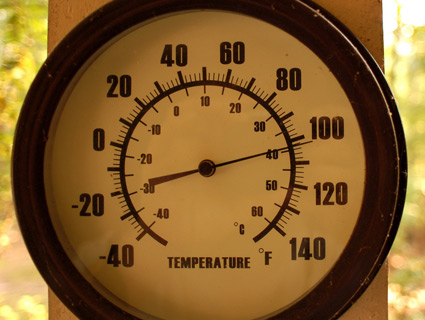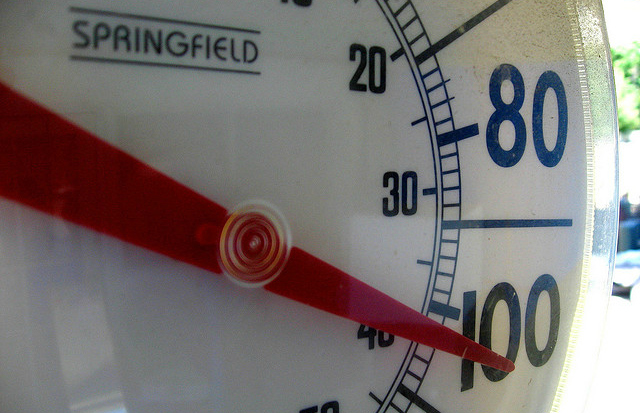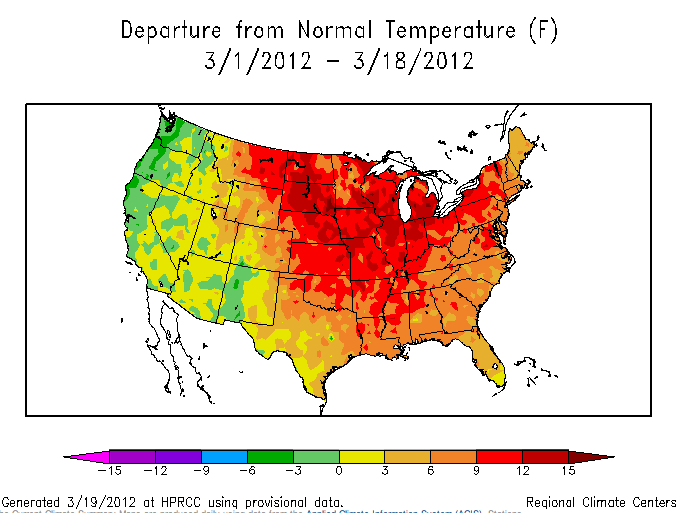
<a href="http://www.flickr.com/photos/amayzing/5965649900/in/photostream/">Tom May</a>/Flickr
Even small changes in summer temperatures—as little as 1.8°F (1°C) higher than usual—can be deadly to people over age 65 with chronic health problems like diabetes, heart failure, and chronic lung disease, as well as to those who’ve survived prior heart attacks.
Other studies have focused on the short-term lethal effects of heat waves. But new research from the Harvard School of Public Health suggests that small changes in temperature patterns over the long run shorten life expectancy and could result in thousands of additional deaths per year.
Scientists now predict that climate change will not only increase overall world temperatures but will also increase summer temperature variability—particularly in mid-latitude regions like the mid-Atlantic US and in parts of France, Spain, and Italy. More volatile temperature swings could pose a major public health problem, the authors note in their paper in PNAS.
- The researchers used Medicare data from 1985 to 2006 to follow the long-term health of 3.7 million chronically ill people over age 65 living in 135 U.S. cities.
- Years when summer temperature swings were larger had higher death rates than years with smaller swings.
- Each 1.8°F increase in summer temperature variability increased the death rate for elderly with chronic conditions between 2.8-4 percent, depending on the condition.
- Mortality risk was 1-2 percent higher among those living in poverty and for African Americans.
- Mortality risk was 1-2 percent lower for people living in cities with more green space.
Based on these increases in mortality risk, the researchers estimate that greater summer temperature variability in the US could result in more than 10,000 added deaths per year.
I wrote earlier about the many ways climate change is disproportionately more deadly to women than men.















